How Long Does it Take to Make Dentures - The Process: Start to Finish
How long does it take to have dentures made varies from person to person as every person and mouth is different.
Earlier this year, we wrote about how long does it take to have dentures made. It’s a question we get a lot, so we decided to tackle it again. As every denture needs to be tailor made to suit the individual, no exact time frame on the process can be given. As an estimate it often takes approximately between six weeks to three months but may take longer and will depend on whether or not you require any teeth to be extracted, the healing time and whether or not it is a full denture or partial denture. Continue reading to learn how long does it take to make dentures.
How Long Does it Take to Make Dentures: The Denture Making Process
First your dental prosthetist will examine the health of your remaining teeth and advise on the best plan of action. In some cases a partial denture can be made that can be used in conjunction with your healthy teeth. In other cases a full tooth extraction of your remaining teeth with a full denture may be bested suited for you. Should the dental prosthetist determine that any teeth need to be extracted the dental prosthetist will take you through the process, explain what to expect and keep you informed so that you can feel comfortable throughout the entire process.
Extraction and Healing
Patients often ask us ‘how long does it take to get dentures after extractions?’ After any teeth have been extracted (if necessary) the gums of your mouth will need time to heal before the dental prosthetist can start the denture making process. The healing of your gums is an important step to ensure that your dentures fit properly. The swelling of your gums when an impression is made may result in discomfort and an improperly fitted denture. Every individual is different but you can expect that it will take about 6-8 weeks before your gums will have healed sufficiently so that the impressions can be made. During this time your dental prosthetist may make appointments at regular intervals to ensure that your gums are healing as planned and if more time is necessary, will advise you at these appointments. Patients looking for a temporary solution while waiting for their dentures to be made may be prescribed , which can promote healing, fill in the gaps of missing teeth and are a good same-day solution after an extraction. Continue reading to learn more about how long does it take to make immediate dentures.
The impression
Once your gums have healed your dental prosthetist can now make an impression of your mouth so that the denture can be tailored to suit you. An impression is the negative mould of your mouth in which a positive cast or reproduction of your mouth can be formed. A liquid or semi-solid material is used and placed in your mouth that is designed to roughly fit over your dental arches. Once set, it becomes a solid usually after a few minutes and leaves an imprint of your teeth and oral cavity.
Bite check and choosing your new teeth
Approximately an hour following the impression the dental prosthetist will use wax blocks to establish a proper bite and orientation of your teeth. At this stage you may be asked to choose the shape, size and colour of your new teeth. To help with this process it’s always a good idea to bring someone along who knows you well. The dental prosthetist may also be able to give advice based on the shape and structure of your mouth.
How long does it take a lab to make dentures?
The impressions and wax blocks are then sent off to the lab so that a dental technician can carefully make your dentures. After a day or two the dental technician will have your permanent teeth set into wax according to the directions of your dental prosthetist. The dentures will then be returned to the dental prosthetist and you will be called for a ‘try-in’. This is the first time that you will be able to see what your teeth will look like before they go through the final process. The dental prosthetist will check the dentures for fit, function and aesthetics. Any minor changes can now be made as the dentures at this stage are made from soft wax. Once the dental prosthetist and you agree on how the dentures look, they are then sent back to the lab for a final time to have any changes made before going through final processing. Finally after approximately two to three days the dentures are cleaned, polished and then returned to your dental prosthetist for final fitting. Your dental prosthetist will make any last minute adjustments before you head home with your new dentures. As this process can take anywhere from six weeks to three months, immediate dentures may be a viable temporary solution while waiting.
Immediate Dentures – teeth pulled dentures same day
Patients who are looking for a temporary solution while waiting for their dentures to be made, can have their tooth extraction and dentures same day with a set of immediate dentures. Immediate dentures are a complete or partial denture inserted immediately following the tooth extraction procedure. The major difference between immediate dentures and regular dentures is that regular dentures are made from an impression of the patient’s mouth after the teeth have been removed. Regular dentures are moulded to fit into the patient’s oral cavity and provide a long-term solution. The healing process is lengthy and this often takes several weeks before you will regain your full set of teeth. Immediate dentures however are moulded to a patient’s oral cavity prior to tooth extraction and are fitted on the same day of extraction.
How long does it Take to Make Immediate Dentures
The process of having teeth pulled dentures same day varies slightly from that of regular dentures. While regular dentures begin after your teeth are extracted, your dental prosthetist will begin the process of immediate dentures prior to having your teeth extracted. The first step in having immediate dentures made is consulting with your dental prosthetist. Immediate dentures may be advised against due to general health conditions or specific oral problems. Your dental prosthetist will be able to advise whether or not you should have immediate dentures made. Following initial consultation, and barring any oral problems, your dental prosthetist will then begin the process of having your immediate dentures made.
Prior to the extraction date of your teeth, you will be asked to come in to have impressions of your current teeth made. The frequency of visits required will vary from patient to patient and will depend on if you require any preliminary surgery. Patients who require complete immediate dentures will need to have their back teeth extracted approximately 6-8 weeks prior to the fabrication of their immediate dentures. This allows the extraction sites to heal to provide better fitting immediate dentures. Over the course of these visits, impressions, bite records, and tooth selection will all take place prior to the mould heading to the lab for fabrication. Finally a try-in of the back teeth will take place before your scheduled extraction day.
Adjusting to your new dentures
Adjusting to your new dentures may provide some level of discomfort at first. During these first few weeks you may experience some difficultly speaking, eating and have some soreness. This is perfectly normal as your mouth needs time to adjust to the new dentures. If you have been using immediate dentures throughout the healing process you may find that your mouth has already begun the process of getting used to wearing dentures. There are some recommended ways to help treat common denture problems available, but if discomfort persists, further adjustments may need to be made at the dental prosthetist’s office.
Having dentures made is a unique process tailored to each individual. If you would like to learn more about the process or find out how long does it take to have dentures made, please don’t hesitate to contact us for more information. We can discuss the different denture options and help you decide what is right for you.
Related Posts
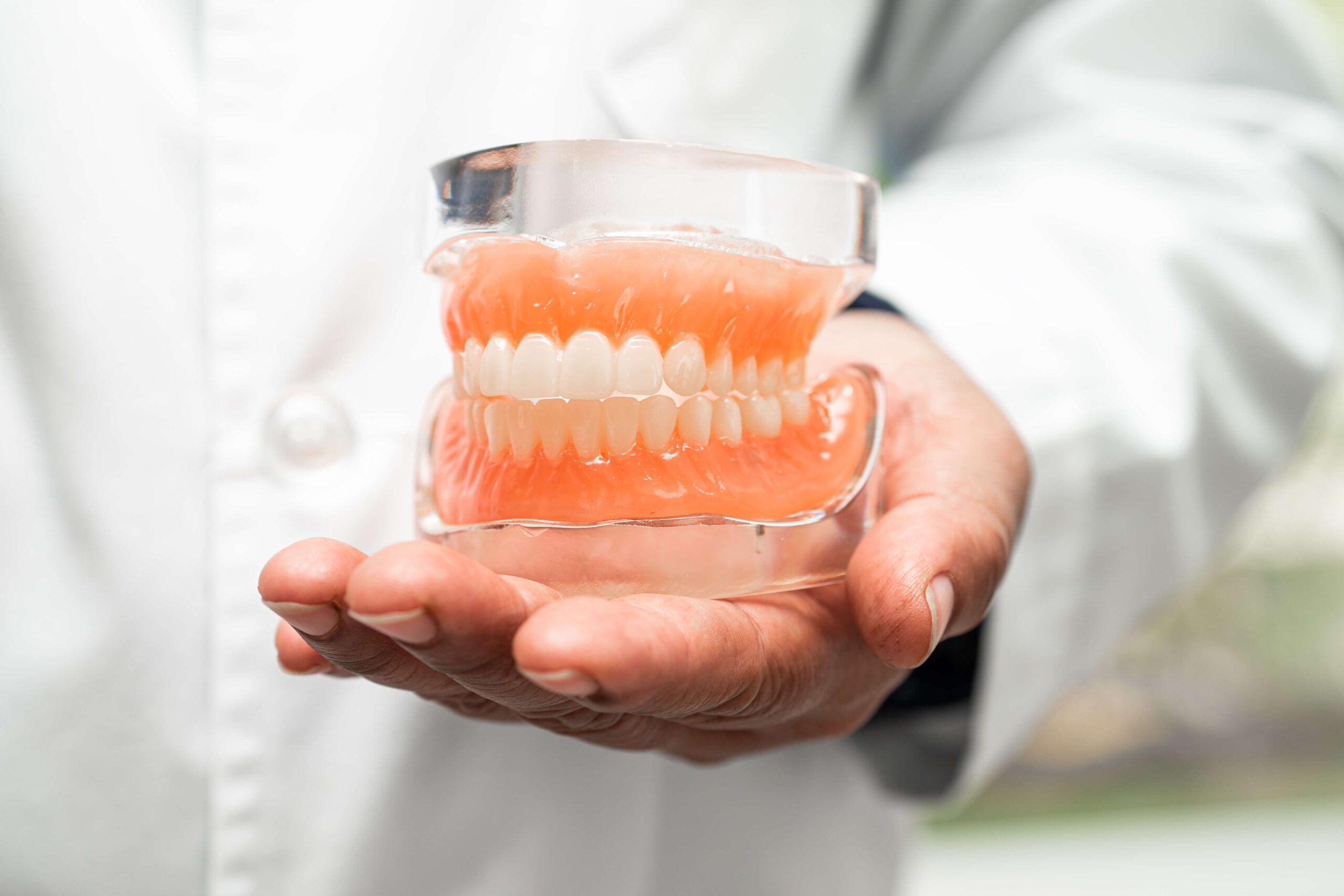
Playing with Dentures – A Guide for Musicians
Playing with Dentures – A Guide for Musicians Whether you are a seasoned musician or looking to learn a new instrument, playing with dentures presents some unique challenges. Dentures that shift around your mouth or being unable to achieve the right sound are some of the issues you may encounter while playing music with dentures,
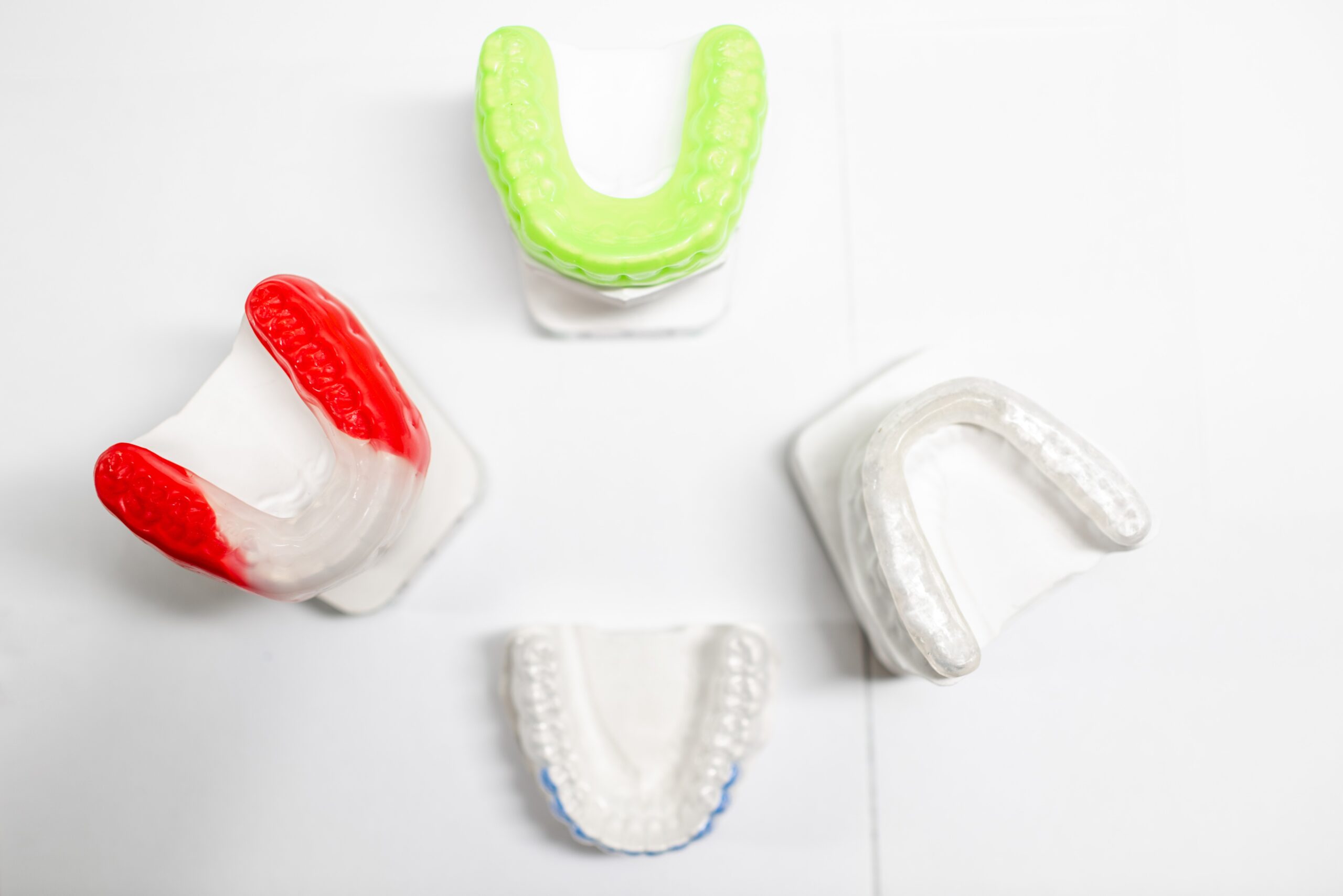
Benefits of Mouthguards: Understanding Their Advantages
Benefits of Mouthguards: Understanding Their Advantages Anyone who has played contact sport before has been told about the importance of wearing a mouthguard. No matter how old you are, or what sport you play, the advantages of mouthguards give you the protection and the peace of mind that you are safer if an incident does
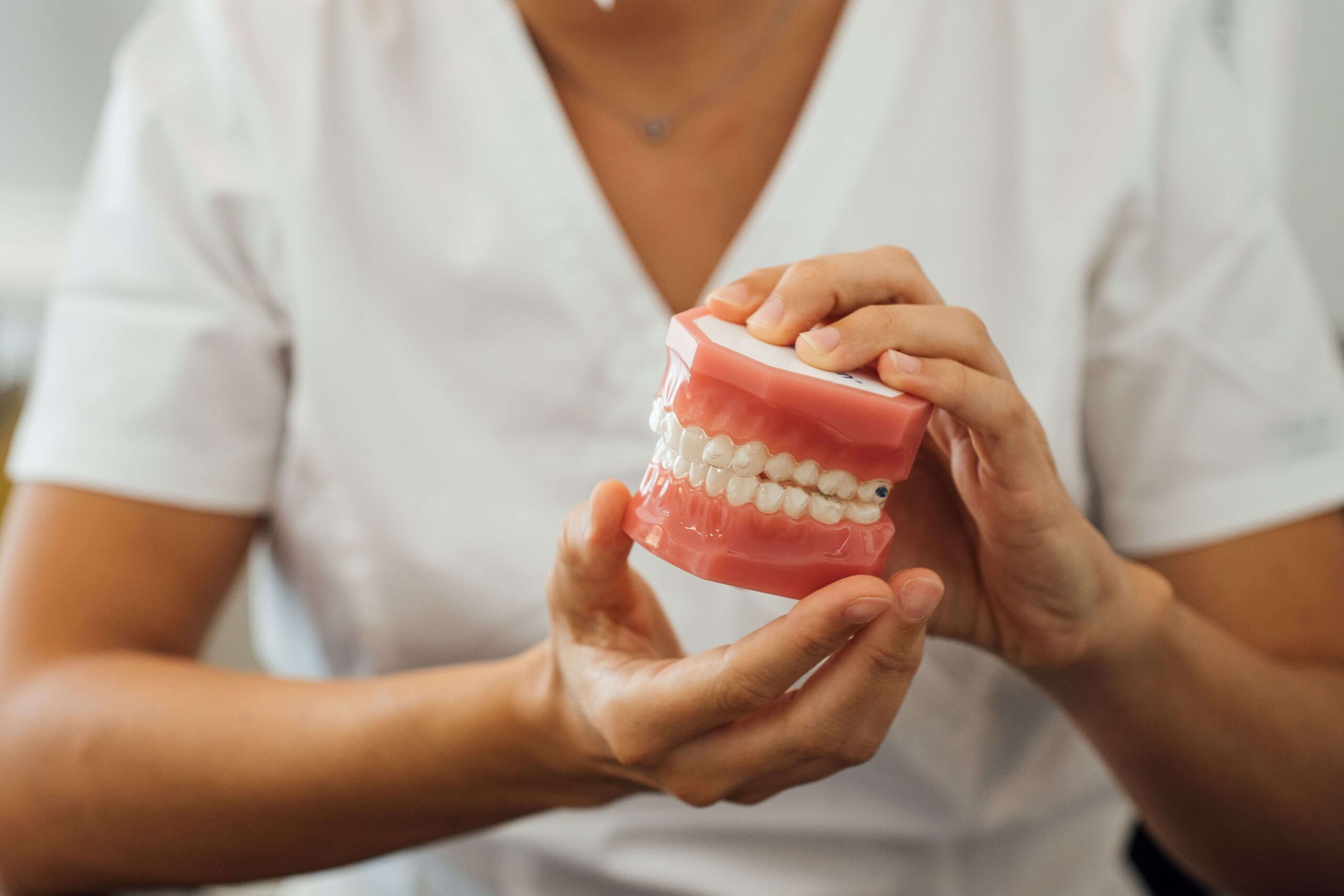
When to Reline Dentures
When to Reline Dentures As a tool designed to improve your quality of living and overall wellbeing, dentures should never feel uncomfortable or awkward to wear. If you are experiencing problems or your dentures simply don’t feel like they used to, it may be time to visit a professional to have your dentures relined. There

Foods to Avoid with Dentures
Foods to Avoid with Dentures Dentures are a majorly beneficial and life changing solution for many people around the world, however, that doesn’t mean they don’t come with responsibility and the need for proper upkeep. It’s important to ensure you’re eating the correct foods and drinking the right drinks that keep your dentures intact and
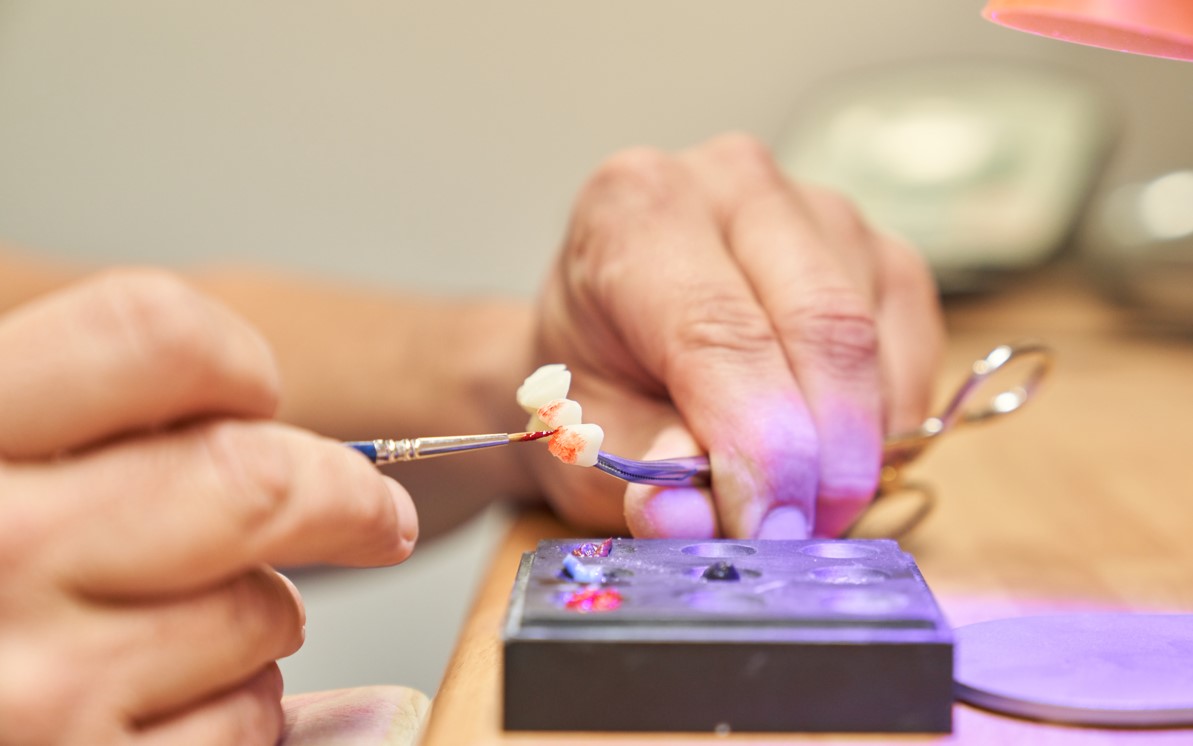
Do Partial Dentures Look Natural?
Do Partial Dentures Look Natural? The simple answer is yes, partial dentures can look natural. But there are a few things you need to know in order to make sure that yours look their best. Partial dentures are specifically designed to match the shade and shape of your existing teeth, so they should blend in
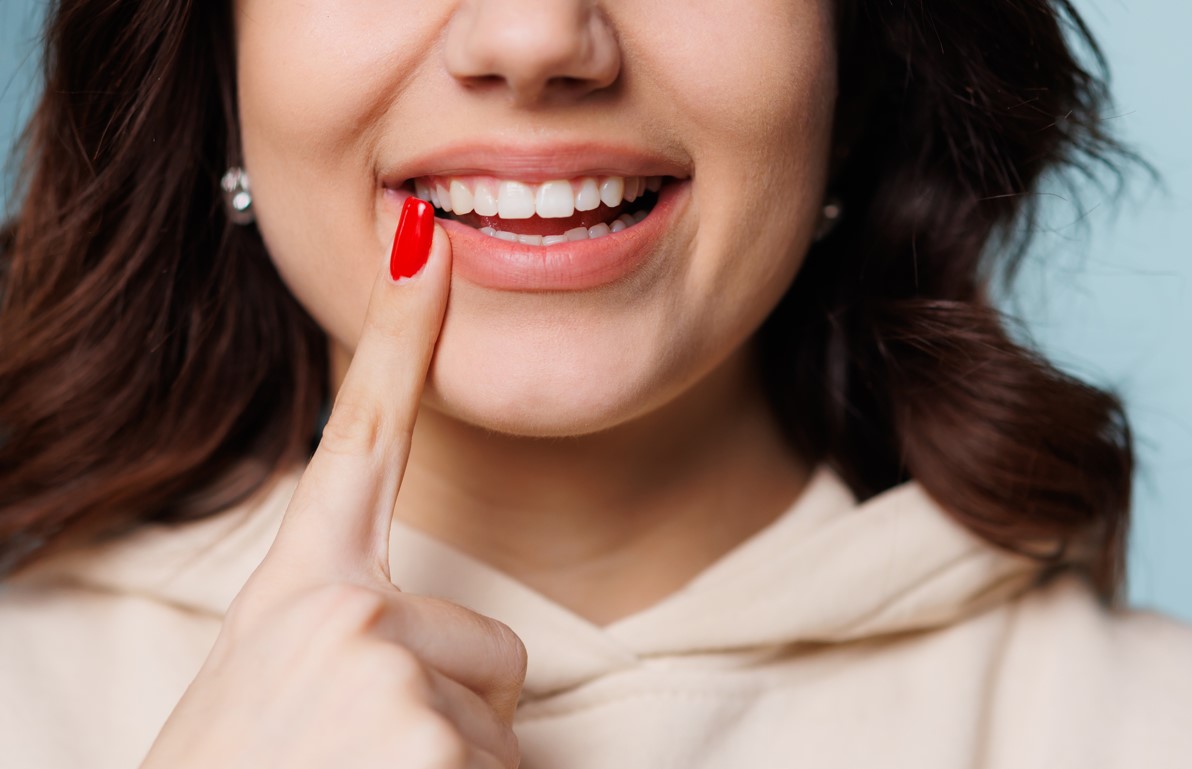
Dentures and Saliva – What You Need to Know
Dentures and Saliva – What You Need to Know If you wear dentures, saliva problems may be an issue that you have to deal with on a daily basis. Dentures and saliva have a complex relationship. Saliva helps to keep your mouth moist and aids in the digestion of food as well. Without enough saliva,
We do whatever it takes to bring you peace of mind
1300 304 092
Call us today
